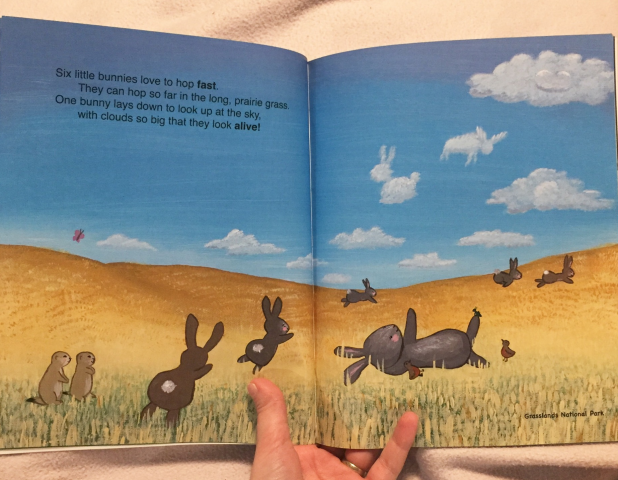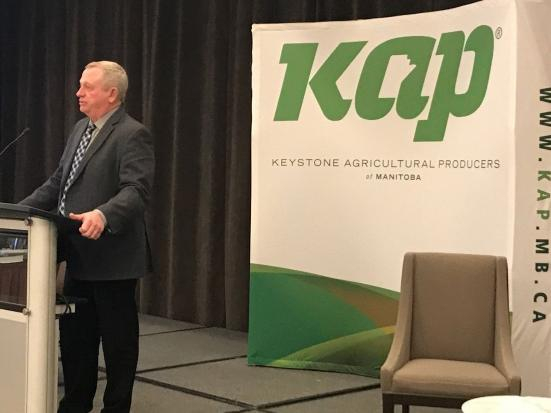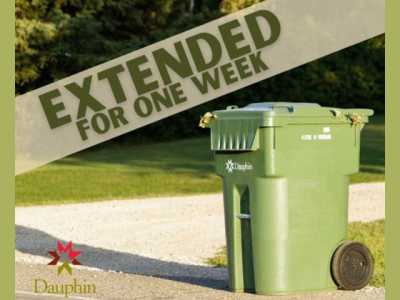 NewsNow
NewsNow
Manitoba's largest farm organization supports a number of the initiatives presented in the recently announced federal budget.
Yesterday’s budget promised to add new money to existing investments to make high-speed internet access in rural communities a reality. President Bill Campbell says KAP has long called for this.
“It’s my understanding between $5 billion and $6 billion will be added in order to improve connectivity to over 900 communities in Canada with more than 200,000 kilometres of advanced fibre networks,” he said. “This will help farmers who are now limited in the innovative technology they can access because of poor internet service.”
Campbell says another positive in this year’s budget is support for farmers in the supply-managed sectors who were forced to give up market share under the recent new trade agreements. These sectors include dairy, poultry and eggs. The $2.15 billion announced will help them address income losses.
Campbell also noted the federal government has committed to look at the exemptions on farm fuel.
“When the carbon tax was announced, we were told there would be an exemption on farm fuel,” he said. “However, we recently we found out that only fuel delivered to the farm is exempt, but not that accessed from a cardlock system. This system allows farmers to get fuel from unmanned fuel stations, which is often more efficient.”
KAP will also continue to lobby for carbon tax exemptions on fuels used for grain drying, and heating and cooling of farm buildings, because these taxes will add very considerable amounts to farm expenses.
- Details
- Contributed by Josh Sigurdson
Right at the start of April, women aged 18-23 will be headed to Ottawa for Daughters of the Vote.
Daughters of the Vote is a program that brings women from all over Canada to represent their community and sit in their respective MP’s seat in parliament.
Alicia Kubrakovich has been chosen to represent her home town, Dauphin, even though she’s going to school at the U of M in Winnipeg.
She’s excited to have the opportunity to go to Ottawa for the program.
She’s looking forward to meeting other indigenous women leaders, meeting the NDP, and talking in the House of Commons about the Missing and Murdered Indigenous Women.
Kubrakovich wants to have her voice heard.
Kubrakovich is the indigenous rep at the University of Manitoba and is running for co-president of the U of M Indigenous Association. She wants to use what she learns in Ottawa to teach new students at the U of M.
- Details
- Contributed by Isaac Wihak
The federal government is bringing in more money than forecast but is spending all that and then some, projecting a 19.8-billion-dollar deficit for the 2019-20 fiscal year.
“Today’s deficits are tomorrow’s taxes. Debts and deficits are something we should try to eliminate as much as we can or minimize,” said Robert Sopuck, MP for Dauphin—Swan River—Neepawa. “ The kind of spending that they’re doing will really not be effective in terms of helping citizens out.”
Canada’s finance minister says the government has to deal with a growing concern that good jobs won’t last. Sopuck thinks it has more to do with the economic headwinds what are the most concerning.
“If you look at some of the economic forecasts, Canada is sailing into some very difficult economic waters. We heard recently how the Chinese are restricting canola imports. That’s affecting our local western rural communities. So again, a prudent budget builder, so-called, would budget in a conservative manner and prepare for the worst. This budget simply didn’t do that.”
Sopuck does support some items in the budget including helping workers transition into a new economy.
“I think that the new economy is something that is really going to help us in western Canada. For example, high-speed internet allows people to work from home. But the amount of money that they are talking about is very, very small. I mean 870 million over five years, that’s simply not a lot of money to train enough people. That’s right across the country. So, it’s a small amount of money for something that I think is actually a good idea.”
The budget also proposes help for first time home buyers. ”Anything to help young people buy homes is a good thing. And again, when I look at the housing situation across Canada for example, housing is becoming clearly unaffordable for many of our young folks. So anything that can be done to help them buy houses is a good thing.”
The budget also takes the first steps toward a national pharmacare plan by creating a new Canadian Drug Agency aimed at reducing the cost of drugs.
Yesterday’s federal budget is the last one before the upcoming election in October.
- Details
- Contributed by Josh Sigurdson
A program similar to Dauphin-At-Risk-Teen is being formed to help adults work better with agencies around town.
The adult program is called Restart, and it’s going to help those aged 18 to 29.
“The objective is to reduce recidivism, basically no longer engaging in negative behaviours. That’s where we see hopefully, if the client is involved in this, a reduction in vandalism, petty crime, truancy with school, better family relationships, it depends on what the need of the client is, but those are the essential ones.”
Lori Bicklmeier is hoping to start April 1st once the reporting requirements for Justice are confirmed.
Through planned approached clients will set goals, plan steps to reach those to refrain from further involvement in problem behaviour.
“I think it would be important to know that it’s not an overnight fix. It’s something that is ongoing, and the clients that we have in our program have multiple complex issues that can go back a long way.” Bicklmeier continues, “Our goal is to continue to support these individuals in bettering their own lives so they can be healthy contributing members to their community.”
Some clients may have been involved with the youth program. This program’s specific criteria mandates they have involvement with a policing agency, the courts, and be already on a probation order.
- Details
- Contributed by Josh Sigurdson
The Crisis Prevention Task Force has been created by Randy Daley.
He says they’re just a group of 16 people that represent different agencies and organizations.
They have two sub-committees working on the agency directory and promotion.
The Task Force is here to create a conversation about things that are happening in the community and being a part of the solution.
The meth crisis and poverty issues are some things they want to pay attention to.
Daley also wants people to be aware of those that are already trying to find a solution to the problems.
If you are an agency, organization, or want to join you can call Alison Moss at Neighbourhood Renewal at (204) 622-3171.
- Details
- Contributed by Isaac Wihak
The provincial government will be distributing 10 million dollars into operation funding for rural municipalities.
The money is for ongoing critical infrastructure needs.
Municipalities don’t have to apply for the funding.
The money will be given out based on population. Municipalities with a population of fewer than 2 thousand people get $37000, 2-5 thousand gets $61,500, a population of 5001-10000 receives $138500, and 246000 dollars is given to a population of over 10001 people.
Payments will be given out on March 31st, July 31st, and September 30th.
The funding can be used for projects starting anytime during the construction season or can be held in reserve for a number of years to complete larger projects, allowing municipalities to efficiently plan for future infrastructure needs.
The funding is unconditional, meaning it can be used for any projects at any time and stacked with any other funding from the government.
This isn’t the only way the provincial government is supporting municipality infrastructure needs. There will be support by provincial and federal funding through the Investing in Canada Infrastructure Program, an additional $2 million invested in the Manitoba Water Services Board budget for municipal water and sewer infrastructure, and the provincial sales tax decrease, estimated to save municipalities outside of Winnipeg $1.3 million per year.
- Details
- Contributed by Isaac Wihak
Gas prices are currently rising in the Parkland area.
Dan McTeague with GasBuddy says we are seeing prices around the 112.9 range and by the middle of April the prices could rise 4-7 cents.
He doesn’t expect prices to drop until November.
Prices will consistently remain higher from May to October costing around $1.20-1.25.
The carbon tax will be a big reason for the rising prices.
The government's plan is for gas prices to rise by 2 cents every April 1st until we pay 11 cents net from the carbon tax.
McTeague says the government’s plan is to get everyone driving electric cars.
Right now the Canadian dollar compared with the American dollar adds 14 cents to the price of a litre of gas.
- Details
- Contributed by Isaac Wihak
A couple of traffic stops by Dauphin RCMP last week led officers to seize a large amount of cocaine, as well as methamphetamine, paraphernalia, and weapons.
Around 9PM last Friday March 15th, a traffic stop was conducted on Main Street in Dauphin which resulted in the seizure of 764 grams of cocaine, and various drug paraphernalia. Two days later on Sunday the 17th, another stop was conducted on 4th Ave Southeast in Dauphin which led police to 11 grams of methamphetamine, some Canadian currency, and various weapons including a conducted energy weapon and a can of bear mace.
36-year-old Steven Gerald Catagas, who RCMP say is reportedly a Band councillor for Tootinaowaziibeeng Treaty Reserve #292 with a last known residence of Grandview, was arrested on charges of Possession for the Purpose of Trafficking, and for Failing to Comply with a Recognizance.
As well, 29-year-old Preston Rodger Flatfoot from Dauphin has been arrested on charges of Possession for the Purpose of Trafficking, Unauthorized Possession of a Prohibited Weapon x 3, and Possession of Property Obtained by Crime. Both men are to appear in court in Dauphin later today.
Dauphin RCMP continue to investigate.
- Details
- Contributed by Alec Woolston
The risk of major flooding in the Parkland is minimal.
Jeff Thiele, from the Intermountain Conservation District, expects only localized flooding this year.
“Right now the lakes are at, kind of a good level. They can accept quite a bit of water. But i think it would depend on what the spring precipitation is like." Thiele continues, "I think they can accept this snow melt. A lot of the soil going into the fall is dry, so the water seems to be going in so far, into the ground.”
With the night time temperature dropping below freezing each night and with the warm days the snow is melting nicely.
As long as we don’t get two weeks of rain in a month, we shouldn't have a problem. If we do, Thiele says Dauphin Lake could be in trouble.
Thiele says with the weather we've been having farmers will have a good start going into spring seeding.
IMCD now has three flood control dams in operation that will help reduce peak flows and flood damages. They are planning to construct another one this summer.
- Details
- Contributed by Josh Sigurdson
Farmers have two more weeks to hand in their Federal Fuel Charge Exemption Certificate forms.
Sharmin Rodgerson, from the Gilbert Plains Coop, says forms need to be in the computer system by April 1st to avoid paying the Carbon Tax.
“They get fuel, say April 2nd, and haven’t filled out that form they will have to pay that time. If they fill out the form after that any fuel beyond that will be exempted. But they will not get a refund for Carbon Tax that’s already been, and they cannot backdate these forms. They have to be into us and into the commuter system prior to getting an exemption.”
This exemption only applies to bulk delivered fuel, and not at the cardlock.
“They need to remember though that cardlock at this time is not exempt. It does not matter if they have forms filled out or not. And it is clear and dyed to the farm.”
Rodgerson says she’s hoping the issue can be resolved in time and expects a drop in cardlock usage.
“There’s, I think, a lot of negativity right now expectedly regarding without a cardlock exemption. A lot of local farmers deal strictly with cardlocks, not always about delivering. So that’s going to affect a great deal of our customers."
- Details
- Contributed by Josh Sigurdson
Now living in Saskatchewan, a former Dauphinite wrote a children’s book.
Sharla Griffiths wrote Six Saskatchewan Bunnies.
The book follows six bunnies as they travel through Saskatchewan, visiting well-known places and hidden gems.

Griffiths has been blown away by the support for her book.
“Everyone’s telling me how much they like it, my friend’s pre-school class was the demo group and they all loved it. There are familiar themes for them especially here in Saskatchewan. So yeah it’s been really amazing to hear all the good responses to it.”
She wrote the book because she has kids that have lots of books about other places and she thought Saskatchewan and Canada should have books just like it.
She plans to write more with Manitoba being next on the list.
It took her about a year to get the book done with writing, illustrating and finding the best publisher.
You can purchase her book by clicking here.
- Details
- Contributed by Isaac Wihak


















